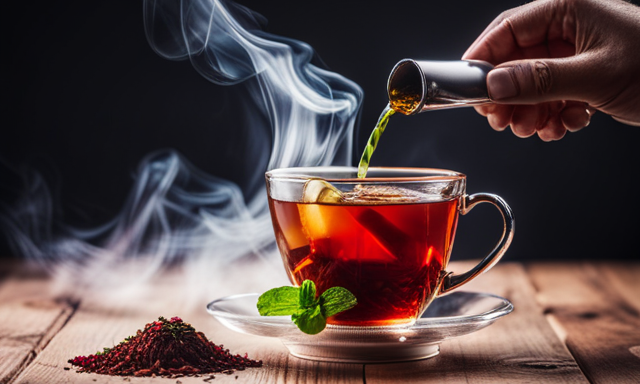Rooibos Revival: South Africa's Caffeine-Free Wonder
Introduction to Rooibos Tea
Rooibos tea, also known as red bush tea, is a caffeine-free herbal beverage native to South Africa. It is derived from the leaves of the Aspalathus linearis plant, which thrives in the Cederberg region. Known for its rich, earthy flavor and vibrant red color, rooibos has been a staple in South African households for generations. Recently, it has gained international popularity due to its numerous health benefits and unique taste.
Health Benefits of Rooibos
Rooibos tea is celebrated for its potential health benefits, making it a popular choice for those seeking a natural wellness boost. Some of the key benefits include:
- Rich in Antioxidants: Rooibos contains powerful antioxidants like aspalathin and nothofagin, which help combat oxidative stress and reduce inflammation.
- Supports Heart Health: Regular consumption of rooibos may improve heart health by lowering blood pressure and cholesterol levels.
- Promotes Digestive Health: The anti-inflammatory properties of rooibos can aid in soothing digestive issues and promoting gut health.

Rooibos in Modern Wellness
In the realm of modern wellness, rooibos tea is increasingly being incorporated into various health and beauty products. Its antioxidant properties make it a popular ingredient in skincare products, helping to protect the skin from environmental damage and promote a youthful appearance. Additionally, rooibos is used in dietary supplements and functional foods aimed at enhancing overall health and well-being.

Rooibos vs. Traditional Teas
Unlike traditional teas such as black or green tea, rooibos is naturally caffeine-free, making it an excellent choice for those sensitive to caffeine or looking to reduce their intake. It also contains lower levels of tannins, which can interfere with the absorption of certain nutrients. This makes rooibos a gentle option for those with sensitive stomachs or dietary restrictions.
| Tea Type | Caffeine Content | Antioxidants |
|---|---|---|
| Rooibos | None | High |
| Black Tea | Moderate | Moderate |
| Green Tea | Low | High |
How to Brew the Perfect Cup of Rooibos
Brewing rooibos tea is a simple process that can be easily customized to suit individual tastes. Here’s a basic guide to making the perfect cup:
- Boil fresh water and pour it over a teaspoon of rooibos leaves or a tea bag in a cup.
- Let it steep for 5-7 minutes, depending on your preferred strength.
- Enjoy it plain, or add milk, honey, or lemon for added flavor.
Rooibos can also be enjoyed as an iced tea or used as a base for creative tea blends.

Exploring Rooibos Beyond the Cup
Rooibos is not just limited to being a delightful beverage. It is also used in culinary creations, such as rooibos-infused desserts, sauces, and marinades. Its unique flavor profile adds depth and complexity to dishes, making it a favorite among chefs and home cooks alike. Additionally, rooibos is being explored in the world of mixology, where it is used to craft innovative cocktails and mocktails.

So, as you sip your next cup of rooibos, embrace the warmth and wellness it brings, knowing you're part of a timeless tradition that's as vibrant and rejuvenating as the land it comes from.
-Hot Water
Comments
Post a Comment